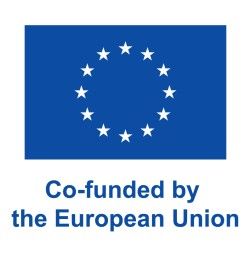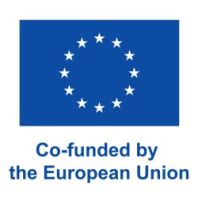Centers of Vocational Excellence for Energy Efficiency and Sustainable Housing - EXCEL 4 HOUSING 4.0
EXCEL4HOUSING4.0 is designed to impact learners, trainers, educational institutions, construction sector companies, innovators, and public authorities and helping them all adapt to and lead the digital and green transition in sustainable housing and construction.
VET Learners and Trainers:
Graduates, workers, professionals, and managers in the construction sector, both at the initial and advanced stages of their careers. They are the primary beneficiaries of new, innovative learning programs designed to upskill and reskill for the green and digital transition in construction and housing. Trainers will also gain new knowledge and apply innovative teaching methodologies.
VET and Higher Education Providers:
Vocational education and training (VET) providers, higher education institutions, and lifelong learning organizations.
These organizations will collaborate in a cross-border network, gain access to new educational content, and develop new training and courses to address skills gaps in the sector.
Construction Companies and Sector Representatives:
Building companies, energy providers, engineering and architecture firms, SMEs, and sectoral associations.
They provide insights into labor market needs and skills gaps, participate in business-education partnerships, and benefit from upskilled employees and innovative solutions.
Innovation Agencies, Research Institutes, and Startups/SMEs:
Public and private research organizations, innovation agencies, and startups/SMEs with solutions for decarbonization and digitalization of buildings.
They gain opportunities for collaboration, knowledge exchange, and participation in open innovation and acceleration programs.
Public Authorities and Policymakers:
European, national, and regional bodies responsible for industrial policy, construction, environment, climate, employment, and social affairs.
They receive policy insights and recommendations to support the achievement of zero-emission targets and the green transition in the built environment.
EXCEL4HOUSING4.0 is a world-class Erasmus+ Partnership for Excellence aimed at building a transnational network of Centres of Vocational Education bringing together VET providers, academic and research entities, innovation and industry clusters as well as public entities coordinating energy efficiency and sustainable programs at national and regional level.
This initiative will seek to address emerging needs and the “jobs of the future” for energy efficient and sustainable housing – Housing 4.0.
To that end, we will address:
(i) Cluster 1
– Teaching and Learning: Design and develop innovative cross-border training and capacity building programmes and exchange practices aimed at fostering the transfer of smart and green skills, as well as circular economy methodologies, principles and tools for the improvement of the environmental sustainability of the housing sector;
(ii) Cluster 2
- Business-education partnerships
- Develop VET-academia-business strategic partnerships oriented to co-develop and implement
industry-relevant curricula, work-based learning opportunities, and upskilling and re-skilling programmes for VET learners, teachers, SMEs, and workers in the energy efficiency and housing sectors;
(iii) Cluster 3
– Governance and funding: Develop a collaborative and long-term sustainability framework, supported by a sustainable funding model for training and education in Energy Efficiency Finance.
EXCEL4HOUSING4.0 will contribute to the twin digital and green transition in the construction sector, while ensuring the delivery of the Green Deal targets and effective transition pathways for environmentally, socially, and economically sustainable housing.
Objectives:
EXCEL4HOUSING4.0 will develop a network of at least 5 macro-regional VET hubs (Centres of Vocational Excellence - CoVE), each one composed of at least one VET provider and one business representative.
These CoVEs will operate at national/regional level, putting in place a solid structure for business-education cooperation and dialogue to find common solutions and practices to develop an innovative cross-border VET ecosystem in the field of energy-efficient and sustainable buildings.
The project aims at becoming an European reference initiative, supporting in the green transition and decarbonization of the buildings sector, by contributing to the implementation of the European Green Deal, the New European Bauhaus, the Renovation Wave and the EU Pact for Skills in the construction sector.
Partners
The EXCEL4HOUSING4.0 project brings together a diverse and highly qualified consortium of partners from across Europe, each contributing unique expertise to the initiative’s mission of advancing energy efficiency and sustainable housing through vocational education and training. At the heart of the partnership are leading vocational education and training (VET) providers and universities, such as the European Association of Institutes for Vocational Training (EVBB) in Germany, KTH Royal Institute of Technology in Sweden, Novia University of Applied Sciences and YA – Vocational College of Ostrobothnia in Finland, University of Perugia and Habitech Cluster in Italy, and the University of Zagreb in Croatia. These institutions are joined by specialized VET centers like AKMI in Greece, CICCOPN in Portugal, and BFW-NRW in Germany, ensuring a strong foundation for developing and delivering innovative training programs. The consortium also includes prominent industry and innovation clusters, such as the European Construction Industry Federation (FIEC) in Belgium, Mazovia Energy Cluster in Poland, Merinova Technology Center in Finland, Energy Efficient Cluster of Catalonia (CEEC) in Spain, and Habitech Cluster in Italy. These partners bridge the gap between education and the real needs of the construction and energy sectors, fostering business-education partnerships and supporting the adoption of new technologies. Research and public sector expertise is provided by organizations like the National Laboratory of Energy and Geology (LNEG) in Portugal, Extremadura Energy Agency Consortium (AGENEX) in Spain, and the North-West Croatia Regional Energy and Climate Agency (REGEA). Their involvement ensures that the project is aligned with the latest policy developments and regional needs in energy efficiency and sustainability. The partnership is further enriched by professional associations and networks, such as the Panhellenic Association of Engineers Contractors (PEDMEDE) in Greece, the Foundation for Architecture (Torino) in Italy, and BGT Innovation Labs in Belgium, which bring in perspectives from practitioners, entrepreneurs, and innovators. The consortium also includes partners from Eastern Europe, such as the State Vocational Educational Institution "Sumy High Vocational School of Construction and Design" in Ukraine, reflecting the project’s commitment to transnational cooperation and upward convergence across different regions and levels of development. Together, these partners form a robust network that spans education, research, industry, and public policy, working collaboratively to drive the green and digital transition in the construction sector and to make sustainable housing a reality across Europe.
Finansiärer
The project is co-funded by The European Union


